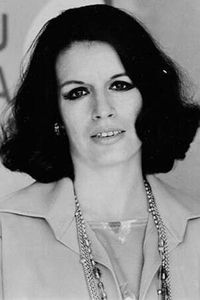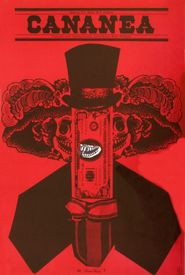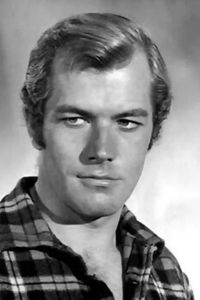Marcela Fernández Violante, a celebrated Mexican filmmaker and director, made her grand entrance into the world on June 9, 1941.
Violante embarked on a remarkable professional odyssey, commencing with her involvement in a documentary film that showcased the life and work of the renowned Mexican artist Frida Kahlo, a production that subsequently garnered the prestigious Ariel Award for "Best Documentary". This notable achievement served as a springboard for further collaborations, with one such notable project being the documentary "El grito", skillfully directed by Leobardo López Aretche, which delved into the tumultuous events that unfolded on October 2nd, 1968, in the vicinity of Tlatelolco, an occurrence that would leave an indelible mark on the nation's collective consciousness.
Violante's groundbreaking achievement in the realm of documentary filmmaking culminated in her historic distinction as the pioneering woman director of a documentary dedicated to the inimitable Frida Kahlo, a feat that earned her widespread recognition and accolades. This remarkable documentary, a testament to Violante's exceptional craftsmanship, garnered a plethora of prestigious awards, including the esteemed Silver Goddess Award, the Ariel award for best debut opera, and the prize for best short film at the Guadalajara film festival in 1973.
The documentary's critical acclaim continued to mount as it went on to claim the special jury prize at the London festival in 1974, a distinction that solidified its status as a masterpiece of cinematic storytelling. Furthermore, the documentary was honored with a special exhibition at the esteemed Solomon R. Guggenheim Museum in New York, a testament to its profound impact on the art world, in the same year.
Violante's trailblazing work in documenting the life and legacy of Frida Kahlo has left an indelible mark on the world of documentary filmmaking, paving the way for future generations of women to follow in her footsteps and continue to push the boundaries of this art form.
Violante's cinematic journey commenced in 1974 with the production of her inaugural feature film, "De todos modos Juan te llamas", a groundbreaking project that delved into the complexities of the Cristero War in Mexico, which took place in 1927. This pivotal conflict was marked by a tumultuous period of violence, rebellion, and political upheaval, as the Mexican people struggled for autonomy and self-determination in the face of oppressive government rule.
The film also explored the rise to power of the Institutional Revolutionary Party (PRI),a dominant political force in Mexican politics that would go on to shape the country's political landscape for decades to come. The film's portrayal of the PRI's consolidation of power was a bold and daring move, given the party's long history of authoritarian rule and manipulation of the political system.
Notably, "De todos modos Juan te llamas" was a significant achievement in and of itself, as it was the first feature film produced by the National Autonomous University of Mexico (UNAM),a prestigious institution of higher learning. The film's critical portrayal of the Catholic Church and the Mexican Army was a courageous move, given the sensitive nature of these institutions in Mexican society.
Despite the risks involved, the film was allowed to be commercially exhibited, a testament to Violante's skill and determination as a filmmaker. "De todos modos Juan te llamas" was a landmark film that showcased Violante's talent and artistic vision, and it paved the way for her future projects, which would continue to push the boundaries of Mexican cinema.
Violante's impressive body of work has garnered significant recognition and accolades at various prestigious film festivals, with notable mentions including the esteemed New York film festival in 1976 and the equally renowned Havana film festival later that same year.
In addition to her accomplished career in the film industry, Violante has also made a lasting impact as a professor of scriptwriting and filmmaking at the prestigious CUEC. During her tenure, which spanned from 1984 to 1988, she served as a director, leaving a lasting legacy on the institution and its students.
The illustrious career of Violante has been marked by a steadfast commitment to championing the fundamental right of freedom of expression within the realm of cinematic storytelling. A testament to her unwavering dedication, she has consistently demonstrated a keen eye for distinguishing between artistic merit and pretentiousness, exemplified by her notable decision in 1980 to expel Alfonso Cuarón from the prestigious CUEC, deeming his documentary "Vengeance is mine" to be overly self-indulgent.
In addition to her influential role as a film critic and advocate, Violante has also shared her expertise as a guest speaker at numerous esteemed academic institutions, including the venerable Loyola University in New Orleans, the University of California, Los Angeles (UCLA),and the New York University (NYU) in the city that never sleeps.
Violante, a prominent figure in the Mexican film industry, holds esteemed memberships within various professional organizations, including the prestigious Union of Film Production Workers of the Mexican Republic, a respected collective that advocates for the rights and interests of its members. Additionally, she is an active participant in the General Society of Writers of Mexico, a renowned organization that fosters creative expression and literary excellence among its members. Furthermore, her dedication to the arts is evident through her involvement with the Matilde Landeta cultural association, a prestigious organization that celebrates and promotes Mexican culture and its rich heritage.











